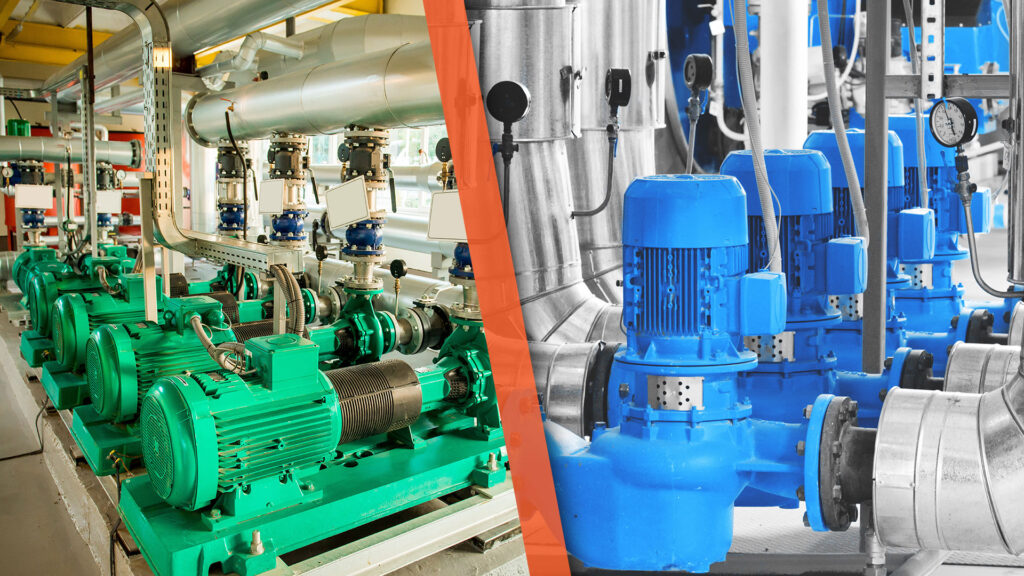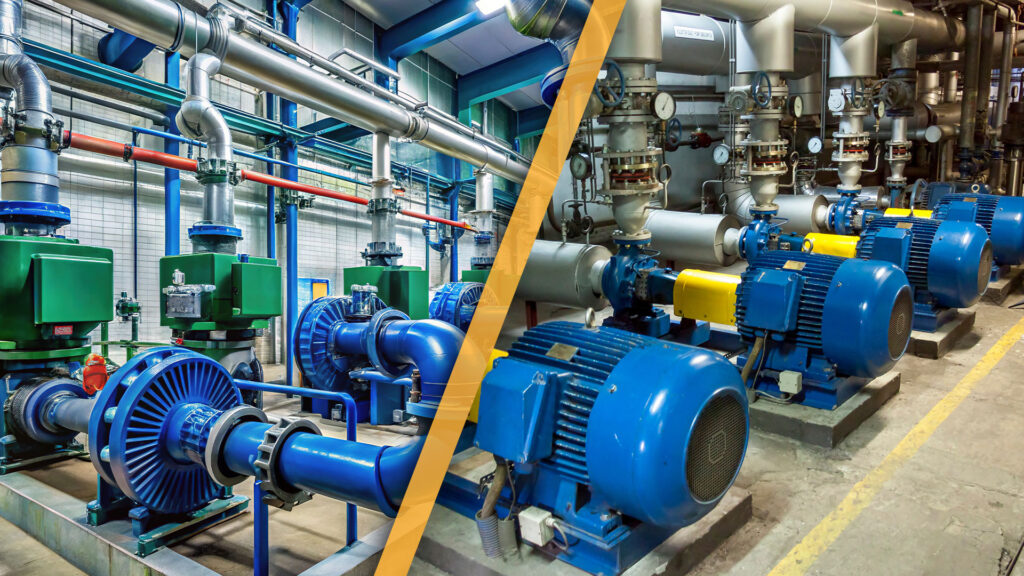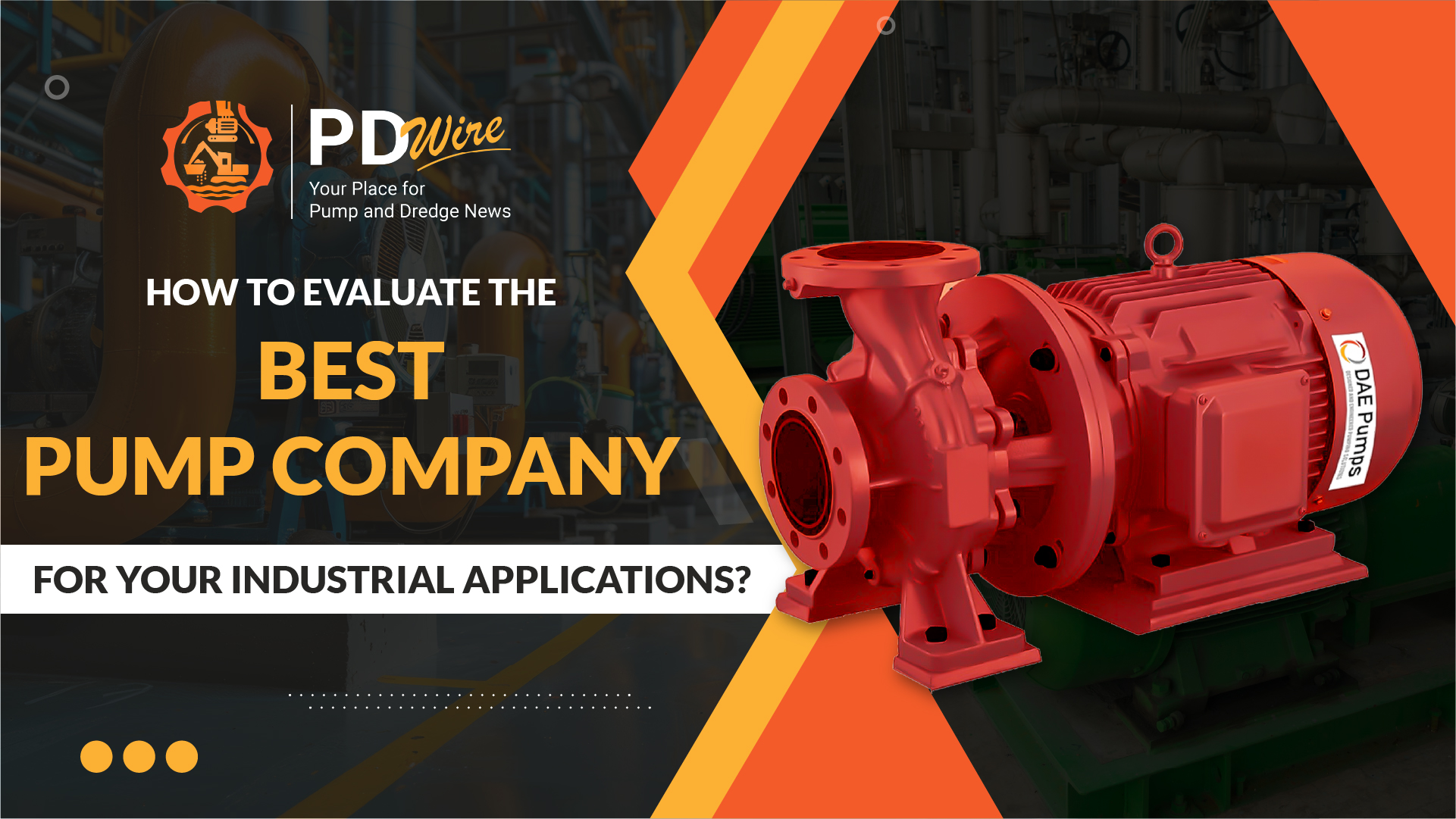In industrial settings, pumps are crucial to operations across various sectors, from mining to wastewater management. Choosing a reliable pump company is essential to ensure that your operation runs smoothly without frequent breakdowns or costly downtime. In this article, we’ll explore the key factors to consider when selecting a pump company that best suits your industrial needs and help you choose a provider that will be a valuable, long-term partner.
Understanding Your Industrial Pump Needs

Before choosing an industrial pump company, it’s crucial to understand your specific requirements. Pumps come in different types and sizes, each designed to handle specific fluids, flow rates, and pressures. For instance, a wastewater treatment facility may need a pump that handles high solids, while an oil and gas operation might require a pump with high pressure and corrosion resistance. Matching the pump type to your application helps maximize efficiency and prolongs the equipment’s life.
Key Factors for Evaluating Pump Companies
When researching these companies, focus on these key factors to identify the one that best aligns with your needs.
Range of Products and Specialization
One of the first factors to evaluate is the range of products offered. Does the pump company provide a diverse selection of pumps, such as centrifugal, diaphragm, and submersible pumps? A broad product range signals that the company can meet different industrial requirements. Additionally, if your industry has specific demands—like slurry handling in mining—look for pump companies that specialize in that area. Specialization often means they possess the expertise and equipment needed for your specific applications.
Technical Expertise and Industry Knowledge

Technical knowledge is critical when it comes to pumps, as a small error in design or configuration can lead to costly operational failures. A reputable pump company should demonstrate technical expertise, either through knowledgeable representatives or technical documentation. To assess this, inquire about the industrial pump company’s experience with applications similar to yours. Ask for case studies or examples where they have solved industry-specific challenges, ensuring they have a deep understanding of the unique requirements of your industry.
Quality Assurance and Manufacturing Standards
Quality assurance is another important aspect to consider. A pump company with certifications such as ISO standards demonstrates its commitment to maintaining high-quality manufacturing processes. Quality standards not only reflect on the product’s performance but also impact its reliability and longevity. Choosing an industrial pump company that meets stringent quality requirements helps ensure that your pumps can withstand the demands of industrial applications.
Customization and Flexibility
Each industrial application has unique requirements, which may require tailored solutions. Some pump companies offer customization options, allowing you to optimize pump specifications for your needs. This flexibility can be particularly valuable if your operations involve specific environmental or pressure conditions. Custom pump options can enhance operational efficiency and ensure a better fit with your unique requirements.
Reputation and Track Record
A company’s reputation is a strong indicator of its reliability. Check customer reviews, case studies, and testimonials to understand the company’s track record in delivering reliable products and services. A pump company with a solid reputation and proven success in similar applications is more likely to provide dependable equipment and support, making them a trustworthy choice for your operation.
After-Sales Support and Service
After-sales support is essential for maintaining pump performance and longevity. Look for pump companies that offer robust customer support, including on-site maintenance, repair services, and troubleshooting. Strong after-sales service can minimize downtime, help with parts replacement, and keep your equipment running at peak efficiency. Additionally, consider whether the company provides warranties or service contracts, as these can be valuable for reducing long-term maintenance costs and ensuring peace of mind.
Availability of Spare Parts and Components
Industrial pumps require regular maintenance, which often includes replacing components. A company that offers readily available spare parts can help you avoid lengthy downtimes and high maintenance costs. Before committing, verify that the company maintains an adequate supply of essential components and can quickly provide replacement parts when needed. Easy access to spare parts is key to keeping your operations running smoothly.
Focus on Innovation and Sustainability
Many industries are moving towards more sustainable and energy-efficient solutions, and pump companies are no exception. When selecting a pump provider, assess their commitment to innovation and sustainability. Does the company invest in research and development (R&D) to improve pump efficiency? Do they offer eco-friendly or energy-efficient models? By choosing a pump company focused on sustainable solutions, you can reduce your environmental impact and benefit from cost savings due to lower energy consumption.
Cost Considerations and Value for Money
While cost is a factor in any industrial purchase, it’s essential to balance price with quality. Choosing a cheaper pump may lead to higher costs in the long run if it requires frequent repairs or replacements. Evaluate the total cost of ownership (TCO) by considering factors like durability, efficiency, and maintenance expenses. A pump company that offers transparent pricing and demonstrates good value for money can help you achieve a better return on investment (ROI) over time.
Assessing the Company’s Commitment to Safety and Compliance
Industrial applications often involve challenging conditions, so safety is paramount. A reliable pump company should adhere to industry safety standards and provide products that meet regulatory requirements. Look for safety certifications and inquire about the company’s compliance with relevant industry regulations. This commitment to safety not only protects your operations but also ensures that the company is committed to producing high-quality, compliant equipment.
Conclusion
Selecting the right industrial pump company for your applications involves evaluating several critical factors. From understanding your specific needs and verifying technical expertise to assessing quality standards and after-sales support, each step ensures that your chosen provider will be a valuable partner in achieving operational efficiency and reliability. By carefully considering these criteria, you can make an informed decision and choose a pump company that meets your unique requirements, enabling your business to thrive in demanding industrial environments.
